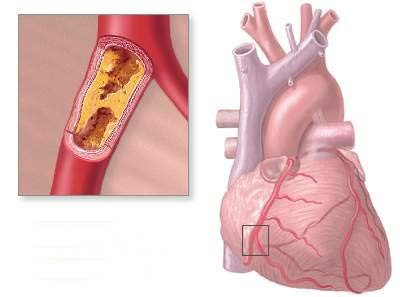2
2009
Who Discovered Heart Disease
Unless you have an enlarged heart, your heart is as big as your fist. The heart is a major organ that pumps blood throughout the body. The normal heartbeat is 70 times a minute.
Heart-related diseases kill thousands around the world everyday. It is not only humans who suffer heart diseases. Animals can have cardiac arrests, too.
Earliest studies on heart diseases
The human heart has been studied for thousands of years. The earliest medical records of heart disease date back to ancient Egypt. In ancient Egyptian religion the human heart was believed to be the seat of the soul, and thus life. The Egyptians thought that there are channels in the heart through which other fluids pass.

Around the 14th century studies of common heart ailments were made in England. Medieval English doctors found out that few people died of heart-related diseases at that time. Their studies showed that the English ate less carbohydrates-based food. They had a diet rich in proteins instead.
Common heart diseases
Having a heart disease means blood supply is blocked somewhere in your heart. This is a result of fats building up in and around your heart’s arteries. As time goes by the walls of your arteries turn fatty. So blood cannot flow freely to the other chambers of the heart. The fat deposit build up is called atherosclerosis. The fat deposits are called atheroma. When the blood supply to heart thins out, you get angina. This results in frequent chest pains.
A worst case scenario is having a heart attack. This happens when an artery is fully blocked. Another word for cardiac arrest is myocardial infarction.

Symptoms of heart diseases
Aside from frequent chest pains and running short of breath, you can have irregular heartbeats, too. When it gets a bit more frequent and harder it is called palpitations. Too much exhaustion from doing highly physical stuff like playing basketball, jogging, and swimming, can lead to heart failure. Heart failure happens when your heart is too weak to pump blood into your lungs.
On the other hand, angina makes you feel like you are having indigestion. It brings a stiffness to the center of your chest which later spreads to you stomach, neck, and back.
Symptoms of a heart attack
Having a heart attack is initially like having angina. More than that, you would have any or all of these signs: running short of breath, sweating, and nausea. But unlike angina, a heart attack can only get worse in time.
How to avoid having heart diseases
Experts say a heart disease is a lifestyle issue. So far the most acceptable advice is to lower your intake of bad cholesterol-laden food.
- Check what you put in your mouth. Have a balanced diet rich in fish oil such as salmon, herring, mackerel, sardines, and other sea foods. Fish oil puts you away from risk of having thrombosis.
- Vegetables stop saturated fats from turning cholesterol. And you can never have an overdose on vegetables. Beans, oats, nuts, fiber, and legumes lower cholesterol levels by leaps and bounds.
- Get physical. Your heart needs oxygen. So you need to do a cardiovascular exercise for at least 30 minutes a every day. You will notice that the longer and more frequent you do this, the better you will feel. Cardiovascular exercise increases your good cholesterol level and burns your calories, too.
- Quite smoking. Smoking hardens your heart’s arteries. Chain smokers double their chances of having thrombosis at an early age.
- Cut back on alcohol. Stick to common wisdom: A couple of beers is fine, anything more than that may cause you harm in the long run.
Finally, love life. It keeps your heart pumping. Studies show that people who love and are loved, live long.

 An article by
An article by 




